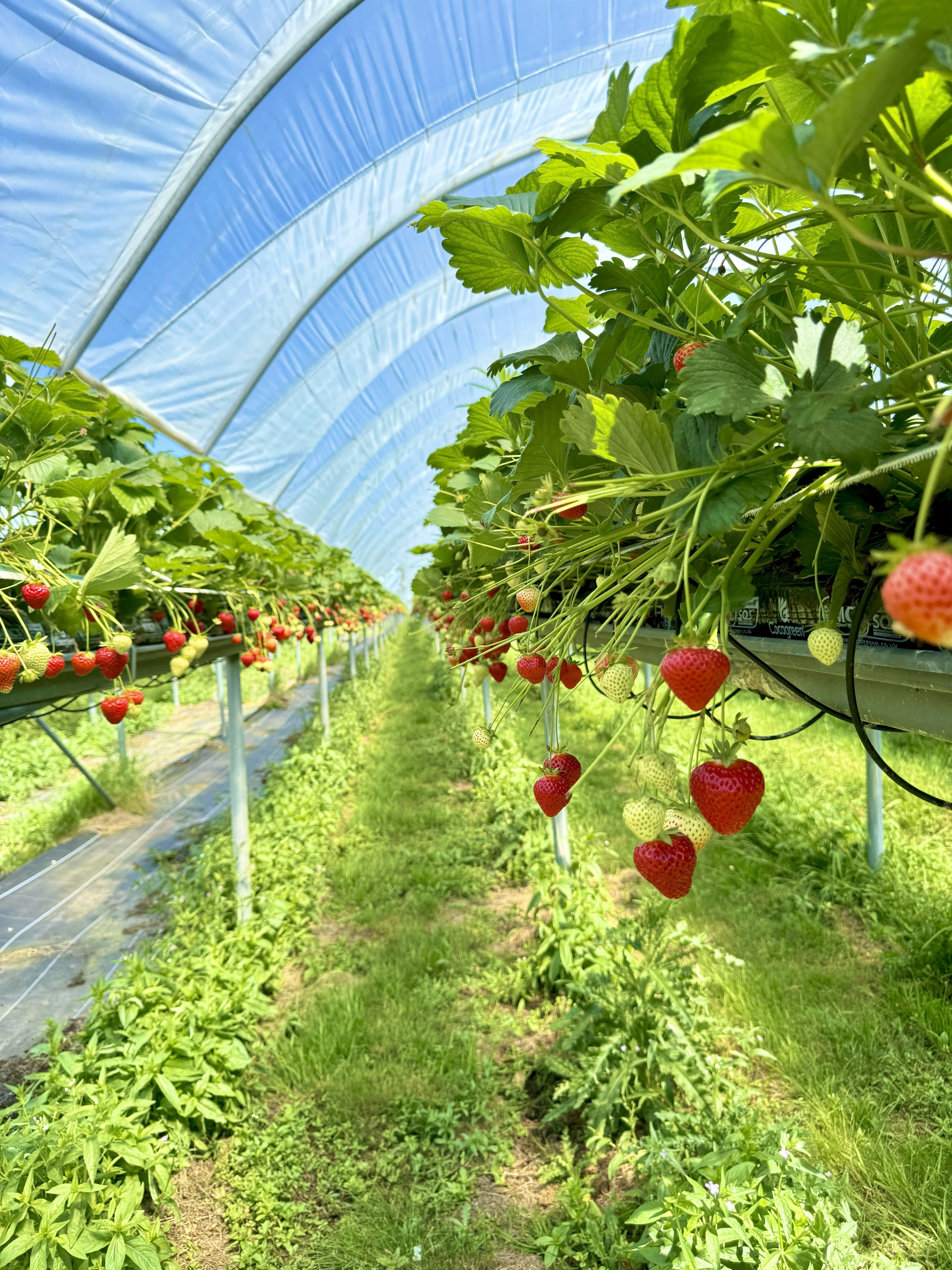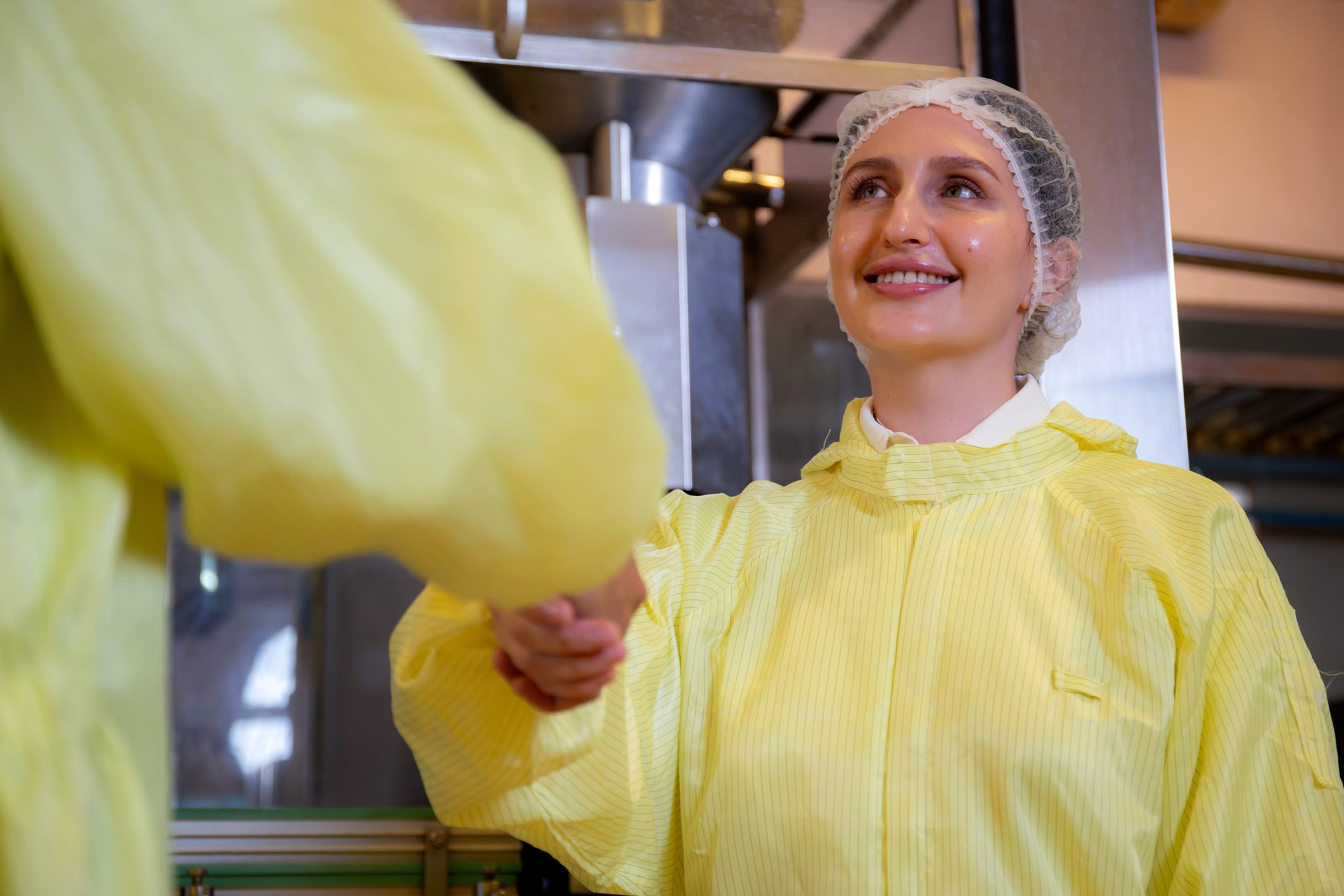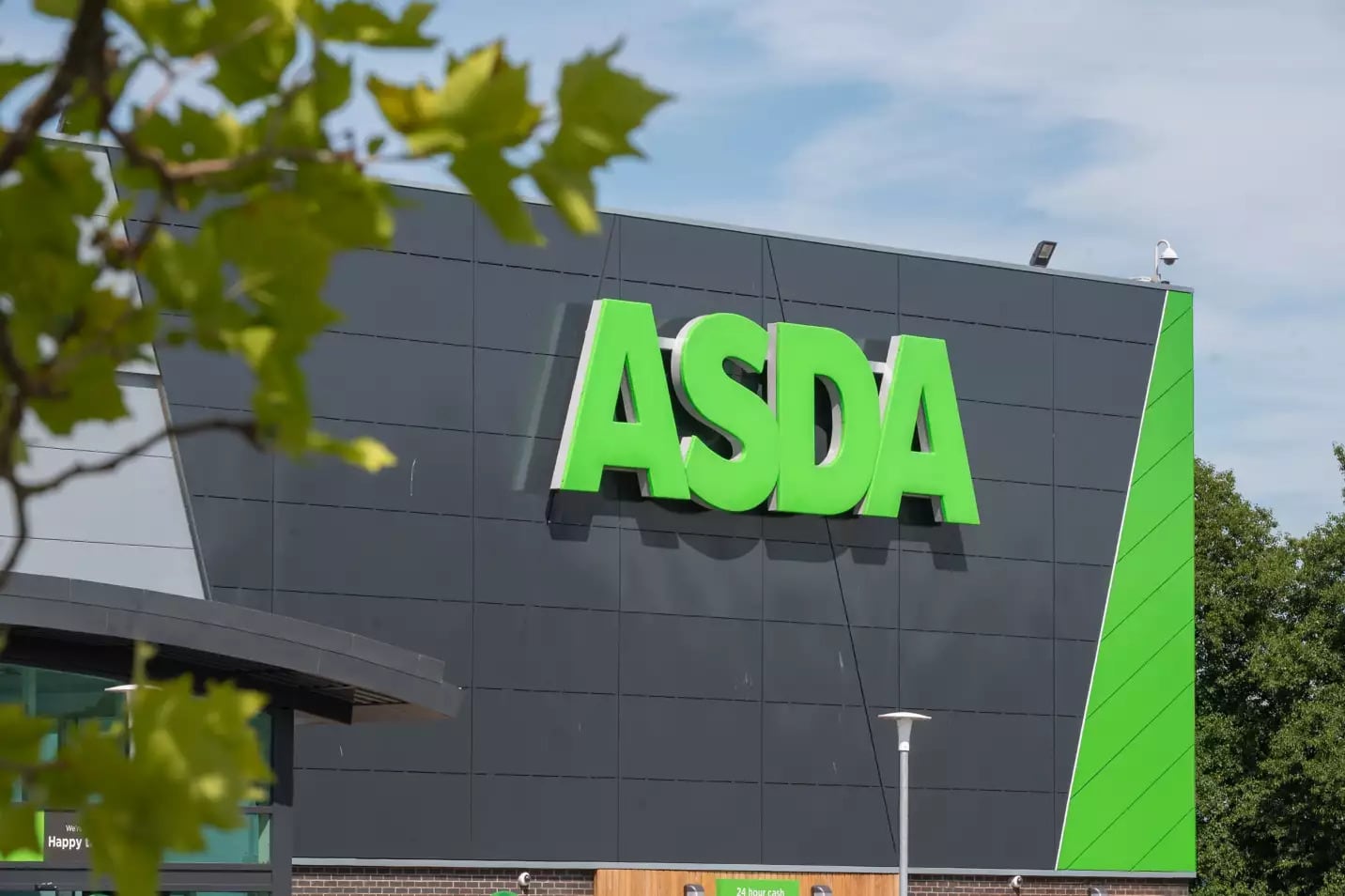Technological innovation is rapidly reshaping British fruit farming.
Place UK - which specialises in manufacturing, co-packing and supplying fresh and frozen fruit ingredients - is among the companies embracing this digital shake-up.
“Over the past three to four years, technology has transformed how we operate,” Dan Yordanov, head of fresh at Place UK told Food Manufacture.
“From precision irrigation to harvest forecasting, these advancements in tech are making fruit farming faster, more efficient, and less reliant on manual, repetitive tasks.”
What’s prompting the shift from traditional farming?
Labour shortages and rising costs have long been the biggest challenges in traditional fruit farming, and key drivers behind the shift to automation and robotics at Place UK.
“When I joined 20 years ago, all the growing and operational tasks were completed by hand. It was hard, physical labour,” Yordanov recalled.
“Today, advances in equipment and technology have made most of this manual work more efficient and enjoyable, while speeding up processes, and helping us control labour costs.
“Labour still accounts for the majority of crop-growing costs, so reducing our reliance on it is essential.
“We’re focused on automating the least desirable tasks, allowing skilled workers to focus on areas where they add the most value.”
Yordanov adds that automation is key to securing the future of British berry farming: “We’re a sector facing ongoing cost pressures. To remain sustainable and competitive, we must continue evolving, just as we’ve done for the past 70 years.”
Investments into smart equipment and processes
The manufacturer has been investing significantly into its infrastructure and smart systems.
Tim Place, owner and chairman of Place UK, through the parent company, led a collaboration of Norfolk farmers to build a £1.1 million irrigation reservoir near Neatishead which opened in April, to help future-proof the business.
Together with five neighbouring farms, Place UK benefits from the 270,000 cubic metres of water storage - equivalent to more than 100 Olympic-sized swimming pools.
While at the farm in Tunstead, 11 miles outside of Norwich, Place UK has implemented new advanced fertigation and irrigation systems, controlled remotely via smartphone and computer apps, to ensure optimal growing conditions in polytunnels.
“Our farm management team can now manage irrigation strategy and climate control remotely, making any adjustments even when off site. This was something that used to require daily manual checks, and for someone to be physically present at the farm,” Yordanov explained.
Technology is also changing how Yordanov and his team plan labour requirements.

“Data collection now drives our decision-making too and forecasting. We use FruitCast which allows us to scan and assess crops using camera systems, predicting yield and harvest timing with greater accuracy,” he said.
“Using advanced AI algorithms to analyse crop data and provide actionable insights, FruitCast supports us to optimise our labour, reduce waste, and improve overall farm efficiency.
“It’s transformed this part of our operations. Previously, someone would manually count and measure fruit, now we get automated, real-time insights that also factor in weather forecasts.”
The adoption of such tech is not only improving productivity and crop quality, but Yordanov firmly believes it will help attract future talent and a new generation of skilled agri-tech professionals.
“It’s a dynamic, exciting time to be entering the industry,” he added.
Yordanov’s colleague, Dean Mayhew is operations director at Place UK and says that while technological transformation in its processing facilities may appear less visible than on the fruit farm, the impact is no less significant.
“If you walked through our processing sites today, they might not look vastly different from a few years ago; but with small additions and tweaks, technology is making a big difference,” he said.
“We’re continuously reviewing how new innovations can support our automation roadmap, which focuses on reducing bottlenecks and optimising operations across the board.”
Place UK processes a wide range of ingredients, from frozen fruits to pulses, grains, rice, pastas and IQF lines, so flexibility is key.
“Our tech investments are often subtle but powerful, small upgrades in specific areas that improve speed and communication between systems,” Mayhew continued.
“For example, we’ve added dynamic conveyor controls and improved sealing systems to enhance downstream flow and output.”
Rather than large-scale overhauls, these targeted enhancements are designed to complement existing processes.
“We pride ourselves on delivering bespoke solutions for customers, whether it’s adjusting cook times to a customer’s precise needs, or producing small runs like a 30g pomegranate sachet for a pizza topping. Any new tech must support, not restrict, Place UK’s agility.
“It’s about smart integration. Each advancement must enhance efficiency while protecting our adaptability, because that’s what sets us apart in the market.”
Nocturnal UV robot trial
More recently, the business has trialled and introduced UV robots to treat strawberry crops for mildew overnight, a previously manual task.
“We’ve been collaborating with Thorvald autonomous robots, developed in Norway, since 2025. This cutting-edge technology has significantly improved operational efficiency and by zapping plants with short bursts of UV light, we’re reducing our reliance on chemical pesticides,” Yordanov explained.
The autonomous nocturnal UV robots work by navigating pre-mapped routes in the tunnels overnight, treating the strawberry plants with shortwave UV light. This suppresses fungal infections like mildew by killing spores before they multiply.
Moreover, because the robots work overnight, daily farm operations can continue without interruption for Place UK’s human team.
Learnings from the trial
One key learning from trialling UV robots has been the need to future-proof farm design around the technology.
“As we introduced autonomous machines, it became clear that farm layouts, such as aisle widths between strawberry plants, access routes, and tunnel structures, will need to be compatible with the new equipment that comes in,” Yordanov said.
“It’s not just about adapting the tech to the farm, but adapting the farm to the tech.”
This has prompted a rethink in how Place UK will approach future site planning.
“Going forward, tech will help shape how we design and run our fields. Even something as simple as the width of an aisle can determine whether a robot can operate effectively.”
As Yordanov noted: that’s why small-scale commercial trials are essential.
“A robot might work well in one environment but face challenges in another. Every farm is different, and these trials give developers vital real-world feedback.”
The collaborative nature of testing helps both growers and tech companies refine their approach.
“It’s a two-way learning process, and the earlier we start working together, the better the outcomes.”
Insects and raspberry picking progress
Another recent innovation includes a machine for distributing beneficial insects, including Amblyseius, Cucumeris and Phytoseiulus across crops, replacing manual hand-sprinkling methods.
“It’s a more consistent, scalable approach to natural pest control,” said Yordanov.
Place UK is also helping to shape the future of robotic harvesting: “We recently trialled a world-first autonomous raspberry-picking robot, that mimics the gentle grasp of a gecko. The Fieldworker 1 is powered by AI-enhanced technology and can detect berry ripeness more precisely than any models before.
The trial was hosted in partnership with Fieldwork Robotics.
Mayhew added: “Raspberry picking is highly complex due to the fruit’s delicacy and plant structure, so this piece of tech is still in development, but trials are showing the robot will still require around 30-40% of the fruit to be picked by a skilled worker.
“In the future, this impressive piece of kit will be an invaluable harvesting solution to growers and is another example of tech advancements working in tandem with our skilled teams, to improve efficiency.”
Integration with Place UK’s people remains central.
“There’s no doubt, the tech coming out of trials is impressive and automation will ensure we get better and better, reduce wastage and improve production efficiencies. We have to manage rising labour costs, but these technologies support, not replace, our workforce. Human expertise is still vital for quality control and decision-making.”
Investing in a cost-restrictive climate
At Place UK, decisions to invest in new technology are carefully tailored to the needs of each part of the business.
“It can be hard to justify large investments without guaranteed returns. That’s why we work closely with tech partners from the outset, acting as a testbed for new innovations,” noted Yordanov.
“We want to be at the forefront of innovation and be a partner to companies who are leading the agri-tech revolution, but we also need to see results and have reliable tech that means we can continue operating successfully, and crucially - meet customer orders. These partnerships allow both sides to benefit.”
By trialling new equipment in real-world conditions, Place UK gains early access to advanced technologies, while helping tech providers refine their solutions.
“With innovations like the UV robots, we consider both farm performance and sustainability. Using a UV treatment, these robots have reduced our reliance on chemicals while improving crop health, so this investment meets both our productivity and environmental goals.”
What makes the UV robots innovation particularly accessible is the flexible investment model.
“Rather than a large upfront cost, we’re subscribed annually, paying per linear metre of crop treated. This allows us to operate two robots without major capital expenditure,” Yordanov said.
He noted that this approach reflects a broader shift in how growers can engage with technology.
Similarly, the use of FruitCast yield estimation technology has proven valuable for both planning and waste reduction; and the system has now been fully rolled out across Place UK’s strategy site.
“It helps us more accurately predict harvests, so we can better manage resources and reduce waste, supporting both operational efficiency and sector-wide sustainability.
“Our investment decisions always consider ethical and environmental factors such as waste reduction and impact on our natural environment too.”
On the processing side, one way the business targets investment is through overall equipment effectiveness (OEE).
“We now use a single, standardised OEE measure across all three of our facilities, that’s the IQF plant, packhouse and processing site, to identify weaknesses, areas where we have waste, and guide automation investment. It’s brought a cohesive approach to how we assess and prioritise new technology,” added Mayhew.
The company evaluates ROI using a holistic framework: PQCDSM – productivity, quality, cost, delivery, and safety, including environmental safety and morale.
“Rather than focusing solely on financial metrics like NPV, (Net Present Value), or IRR, (Internal Rate of Return), we assess the broader impact of each investment,” he continued.
“That includes how it affects our people, will it make their work easier, safer, more enjoyable? Will it help us train and retain a skilled workforce? Environmental Impact is a key consideration that we are passionate about, it is one of our key values, and we must take a holistic view to investment.”
This people-focused approach plays a key role in prioritising capital expenditure.
“If an investment improves day-to-day operations and supports workforce development, it moves up the capex list.”
The model also helps the business avoid poor spending decisions.
“It brings clarity, not just on where to invest, but where not to. We’re aiming for smart, sustainable investments that deliver value across the board, not just to the bottom line.”
By evaluating impact operationally, financially, and culturally, Place UK ensures that each technology adoption supports both business growth and employee wellbeing.
Looking ahead
Place UK is actively exploring new forms of automation, and the business has been involved in early trials of both raspberry and strawberry harvesting robots.
“We’re currently considering a testing of other robotic solutions,” confirmed Yordanov.
“It’s still in the very early stages of development, but we’re keen to support innovations that can meet the demands of large-scale production. While there are limits to how many trials we can take on, being at the forefront of automation is vital to staying competitive.
“It’s not just about discovering new ways to be more efficient, and profitable, it’s genuinely exciting to be part of something that pushes the sector forward. Technology is evolving fast, and for me, and many of my colleagues, this keeps the work really interesting.”
Looking ahead, the business is also exploring automation solutions beyond harvesting. One idea in development is a platform to move fruit automatically from the polytunnels to the loading stations or packhouse, which would see Place UK move another step towards end-to-end automation.
Mayhew added that whilst new technology is always on our radar at Place UK, the business believes the future lies in a blend of technology and human expertise. Automation can improve efficiency, but people remain essential to quality control.
“As we embrace and embed new innovations, our goal is to ensure technology enhances jobs, creates interesting working for our teams, new career opportunities for those entering the sector, and the chance for our people to work with cutting-edge tools. All this combined will help our people to grow with us as we adopt new tech, shaping the future of UK fruit farming and processing together,” he concluded.




